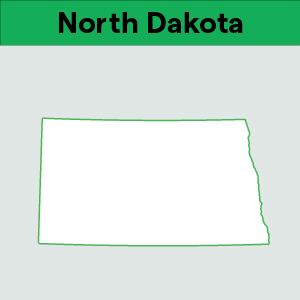What are use tax notice and report laws?
by December 20, 2024
Use tax “notice and report” laws have been in the news quite a bit lately. This post will go over what these laws are, why online sellers should get educated about them, and which states have currently enacted notice and report laws.
We recently sat down with sales tax expert Michael Fleming of Peisner Johnson to talk about notice and report laws.
What are use tax notice and report laws?
Let’s begin with a little history. Sales tax is governed at the state level, and states are hungry for revenue. They understand that with the rise of e-commerce, more people are shopping online and sometimes not paying sales tax rather than shopping locally where sales tax is collected and turned over to state and local budgets. (This feeling was only exacerbated by a recent Government Accountability Office (GAO) study that found states are losing up to $13 billion in sales tax revenue due to e-commerce.)
However, states’ hands are tied due to the precedent set by the Quill v. North Dakota Supreme Court case. This case found that states could only require retailers with some form of “nexus” to the state to collect sales tax from buyers in the state.
With notice and report laws, states have found a clever way to work around the nexus precedent.
Notice and report laws require that retailers who do not have nexus in a state (often referred to in statutes as “non-collecting retailers”) instead follow stringent reporting requirements to ensure their buyers pay use tax.
States with a sales tax generally have corresponding “use tax” laws. Long story short, if a buyer in a state buys an item from an out-of-state retailer and is not charged sales tax, that buyer is supposed to pay consumer’s use tax to the state. However, this is extremely difficult to enforce. Think about it – do you keep track of every online purchase where you don’t pay sales tax? I know I don’t! Getting consumers to understand and pay use tax is extremely difficult, which is why states would rather retailers collect sales tax.
With notice and report laws, states have found a way to kill two birds with one stone – have in-state buyers pay use tax AND make life so difficult for non-collecting retailers (i.e. sellers with no nexus in the state) to NOT collect sales tax that the retailers simply buckle down, register for a sales tax permit, and start collecting sales tax.
How do notice and report laws work?
Each state’s notice and report laws are slightly different, but in general non-collecting retailers who’s gross sales in the state meet a certain threshold are required to do the following:
- Include a notice on your website that use tax may be due on purchases
- Include a transactional notice with each sale informing customers that use tax may be due
- Send an annual notice to customers who spent more than a certain amount with you reminding them that they owe use tax
- Send an annual notice to the state reporting information about the sellers who owe use tax
As you can see, this requires retailers update websites and invoices/emails, advanced recordkeeping, and sending out tax forms to a subset of your buyers. Just to reiterate, states have intentionally made this process difficult in order to encourage retailers to capitulate and just collect sales tax.
Currently 11 states have notice and report laws on the books, though only 6 have any type of penalty for non-collecting retailers who fail to comply.
Wait! Is this even legal?
Yes. And the reason it is legal is because of the nit-picky distinction that these are “reporting” laws rather than “tax” laws.
As I mentioned above, the current precedent set by the Quill v. North Dakota Supreme Court case is that states can only require retailers with sales tax nexus in the state to collect sales tax from buyers in the state.
However, Colorado changed all that. They first passed a notice and report law in 2010, but it was immediately challenged on the basis that it violated the Constitution and the precedent set by Quill. This case went all the way to the Supreme Court where, after series of legal maneuvers, it was eventually decided Colorado’s law did not violate the U.S. Constitution because it was as “reporting” requirement and not a “tax.” You can read more about Colorado’s legal battle to require out-of-state retailers to notice and report here.
Notice and report laws by state
This is an overview of each notice and report law. You will notice that some are more stringent than others. Only six of these even have a penalty for out-of-state sellers who do not follow the law. If you have questions about notice and report laws and how they apply to your specific business, we encourage you to check with the state or a vetted sales tax expert.
Important to note: These laws are subject to change at any time. For that reason, we recommend using this post only as a guideline and doing further research before making business decisions!
Alabama
Alabama Senate Bill 86 “notice and report” law went into effect July 1, 2017. However, Alabama has not yet released information about how non-collecting sellers should respond or what the penalties are for failing to report to Alabama buyers that they should pay use tax.
Alabama has previously started a “remote seller use tax program” to encourage remote sellers to collect sales tax.
The law went into effect July 1, 2017.
Colorado
Non-collecting retailers (i.e. retailers with no sales tax nexus in Colorado) who have more than $100,000 in gross sales in a calendar year in Colorado are required to either register for a Colorado sales tax permit and begin collecting sales tax, or follow Colorado notice and report guidelines, found here, with a step-by-step guide found here.
To summarize:
Non-collecting Colorado retailers who meet the threshold are required to:
- Provide a Transactional Notice to Colorado customers, informing them that the retailer has not paid Colorado state sales taxes on the item(s) being purchased and the customer may have a tax obligation to the state. (See a sample Transactional Notice here.)
- Provide an Annual Purchase Summary to each Colorado customer by January 31 of the following year. This notification should be an end-of-year summary of purchases from the non-collecting retailer to assist Colorado customers in filing their tax returns
- Provide Annual Customer Information Reports to the Colorado Department of Revenue by March 1 of the following year. This report should include customer information including:
- Name
- Address
- Date of purchase(s)
- Amount and category of purchase(s)
- Whether or not the purchase was tax exempt (if known by retailer)
Penalties:
The penalty is $5 for each sale to a Colorado Purchaser that does not provide a Transactional Notice, with a maximum penalty of $25,000. There is a $10 penalty for each Annual Purchase Summary that is not sent by the non-collecting retailer to the Colorado purchaser, with a maximum penalty of $50,000.
The Colorado Department of Revenue has agreed to waive any penalties for failure to follow the law’s notice and reporting requirements for transactions occurring prior to the effective date of July 1, 2017.
This law went into effect July 1, 2017.
Kentucky
Non-collecting retailers (i.e. retailers with no sales tax nexus in Kentucky) who have more than $100,000 in gross sales in Kentucky are required to either register for a Kentucky sales tax permit and begin collecting sales tax, or inform buyers that they have the obligation to pay Kentucky use tax. You can read Kentucky’s publication on this here.
Penalties:
Sellers have no obligation to report to the state.
This law went into effect July 1, 2013.
Louisiana
Non-collecting retailers (i.e. retailers with no sales tax nexus in Louisiana) who gross $50,000 or more per year in sales to Louisiana buyers are required to either register for a Louisiana sales tax permit and begin collecting sales tax, or comply with Louisiana’s notice and report law. You can read more about this law here (search “Act 569”).
To summarize:
Non-collecting Louisiana retailers who meet the threshold are required to:
- Provide a Transactional Notice at the time of sale notifying buyers that use tax may be due on the purchase(s)
- Provide an Annual Notice to Louisiana purchasers each year with the total amount paid by the purchaser to the retailer for property or taxable services during the calendar year by January 31 of the following year. This notice must:
- List the amounts and dates of purchases
- State the name of the retailer
- State whether the property/service is taxable or tax exempt (if known)
- State that Louisiana use tax may be due
- Provide an Annual Statement to the Louisiana Department of Revenue by March 1 of the following year. The notice must contain the total amount paid by the purchaser to the retailer during the calendar year. This notice should contain details of what the purchaser bought.
Penalties:
According to the Louisiana Department of Revenue, “The Secretary may by subpoena, compel witnesses and the production of documents for purposes of enforcement of the requirements relative to the required notices and annual statements concerning taxable transactions occurring in Louisiana involving a remote retailer. The Secretary may request that the subpoena be enforced by court order. Any dealer or remote retailer selling property or services to a Louisiana resident is considered to have consented to the jurisdiction of the courts of Louisiana and the Board of Tax Appeals.”
This law went into effect July 1, 2017.
Oklahoma
All non-collecting retailers (i.e. sellers with no sales tax nexus in Oklahoma), who make more than $10,000 in aggregate sales in Oklahoma in the previous 12 calendar months, are required to either register for an Oklahoma sales tax permit and begin collecting Oklahoma sales tax, or, under H.B. 1019, to do the following:
- post a conspicuous tax notice on their websites/forums. The notice should state that sales or use tax may be due pursuant to 68 O.S. §1393 and that the Oklahoma purchaser is required to file a return if tax is due
- provide a written notice to each purchaser at the time of sale stating that sales or use tax is not being collected, that the purchaser may be required to remit sales or use tax directly to the Oklahoma Tax Commission. The notice should also give instructions on how to obtain more information about this from the Oklahoma Tax Commission
- provide a written report to purchasers every year by January 31 telling them they are required to pay use tax on purchases made in the preceding calendar year. The Oklahoma Tax Commission will provide forms for this document.
- provide a written report to the Oklahoma Tax Commission every year reporting on the activities of sellers who did not pay sales tax and thus are required to pay use tax. The Oklahoma Tax Commission will provide forms for this document.
Penalties:
Penalties for sellers who do not comply are:
- $20,000
- 20% of total Oklahoma sales in the previous 12 months
The penalty is assessed separately for each violation but can only be assessed once per calendar year. For five years after this penalty provision takes effect, the OTC can abate or reduce the penalty or interest due to hardship or good cause.
This law went into effect in April 2018.
Pennsylvania
Non-collecting retailers (i.e. retailers with no Pennsylvania sales tax nexus) who have more than $10,000 in gross sales in a calendar year in Pennsylvania are required to register for a Pennsylvania sales tax permit and collect sales tax from Pennsylvania buyers or to follow Pennsylvania’s notice and report guidelines. Pennsylvania refers to non-collecting retailers as “remote sellers.”
Pennsylvania is a bit different. Remote sellers must elect by March 1 whether they will:
- Register to collect and remit Pennsylvania sales tax
- Comply with Pennsylvania’s notice and report requirements
To summarize:
If the seller elects to comply with Pennsylvania’s notice and report requirements, then starting April 1, 2018 they must do the following four things:
- Post a notice on the sales forum (website, listing, etc.) stating that use tax is due.
- Provide a written notice at the time of purchase that use tax is due.
- Provide an annual report to purchasers by January 31 of the following year include a list of type, date and purchase price of each product they purchased from you.
- Provide an annual report to the Pennsylvania Department of Revenue by January 31 of each year that includes the purchaser’s identifying information and their total dollar amount of purchases from you in the calendar year.
Important to Note: Pennsylvania requires specific language on their notices, and you can see the full text here.
Penalties:
Each failure to comply with the notice and reporting requirements can result in a penalty of $20,000 per violation, per year, or 20 percent of total Pennsylvania sales during the previous 12 months, whichever is less.
This law went into effect February 1, 2018.
Rhode Island
Non-collecting retailers (i.e. retailers with no Rhode Island sales tax nexus) who make more than $100,000 in Rhode Island sales or more than 200 transactions to buyers in Rhode Island are required to either register to collect Rhode Island sales tax or comply with Rhode Island’s notice and report requirements. You can read the text of Rhode Island’s law here.
To summarize:
If the non-collecting retailer elects to not to register and choose to comply with notice and report requirements, they must:
- Post the Website Notice on your website
- Notify the customer at the time of purchase (Checkout Notice);
- Notify the customer within 48 hours of purchase (48-Hour Notice);
- Send customer with $100+ in annual purchases the Annual Notice by January 31st; and
- Provide by February 15th each year the Annual Attestation that the notice requirements were fulfilled.
You can read Rhode Island’s notice and report guide for non-collecting retailers here.
Penalties:
There are no stated penalties for non-compliance.
This law went into effect August 17, 2017.
South Dakota
Implementation of South Dakota’s notice and report law is currently on hold pending the South Dakota v. Wayfair Supreme Court case.
In the meantime, you can read about South Dakota’s notice and report law here.
This law originally went into effect July 1, 2011.
Tennessee
According to a 2012 law, non-collecting retailers (i.e. retailers with no sales tax nexus in Tennessee) are required to inform buyers that they may owe Tennessee use tax. However, there is no penalty for non-compliance.
You can read more about Tennessee’s notice and reporting requirement here.
This law went into effect March 26, 2012.
Vermont
Non-collecting vendors in Vermont (i.e. vendors with no sales tax nexus in Vermont) are required to either register for a Vermont sales tax permit, or comply with Vermont’s use tax notice and report law. Vendors who made more than $100,000 in retail sales in Vermont have more notice and report responsibilities.
To summarize:
The following are Vermont’s requirements:
- All non-collecting vendors – Provide a transactional notice with every Vermont reportable purchase not exempt from sales and use tax.
- Every non-collecting vendor for every Vermont purchaser who made $500.00 or more in total purchases in the previous calendar year – Send notification to all Vermont purchasers with $500.00 or more total, showing the total amount paid by the purchaser for Vermont purchases made in the previous calendar year.
- Non-collecting vendors who made $100,000.00 or more in sales into Vermont in the previous year – Transmit an annual customer information report to the Department of Taxes on or before January 31 of each year for every purchaser required to receive an annual purchase summary.
Penalties:
- The penalty for a failure to provide a transactional notice for a Vermont purchase is $5.00 for each such failure, unless the non-collecting vendor shows reasonable cause for the failure.
- The penalty for a failure to send the annual purchase summary is $10.00 for each such failure, unless the noncollecting vendor shows reasonable cause for the failure.
- The penalty for a failure to transmit an annual customer information report to the Vermont Department of Taxes is $10.00 for each failure, unless the non-collecting vendor shows reasonable cause for the failure.
You can read more about Vermont’s notice and report law here.
This law went into effect July 1, 2017.
Washington
Effective July 1, 2019, SSB Bill 5581 eliminated both the notice and reporting requirements established in the state’s 2018 Marketplace Fairness law
This was updated July 1, 2019.
I hope this post has provided more detail about the various use tax notice and report laws in different US states. Once again, it’s vitally important to stress that these laws are subject to change, and you should almost always consult with the state’s department of revenue or a tax advisor before making major decisions about your business.
Want to take sales tax off your plate? To learn more about TaxJar and get started, visit TaxJar.com/how-it-works.








